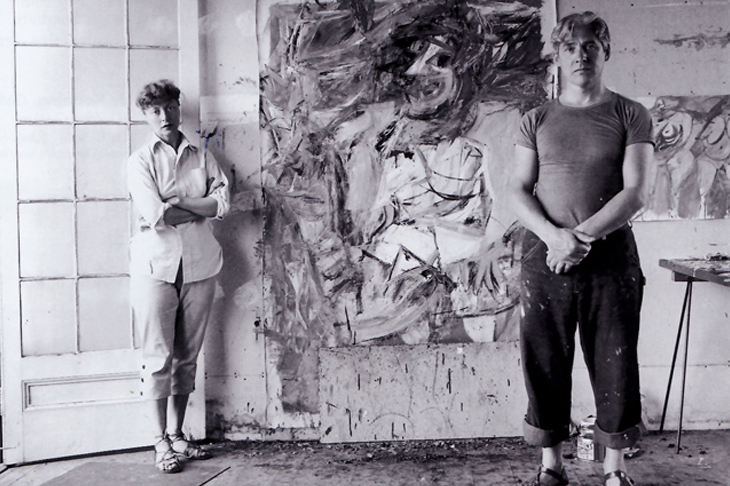This article was originally published on Spectator USA.
It has been several decades since the art world – that swirling miasma of idealism, virtuosity, pretense and money – has recognised the men of the New York School, also known as the Abstract Expressionists, as truly great artists. Paintings by Jackson Pollock, Franz Kline, Robert Motherwell and Willem de Kooning have long been in high demand, now more than ever; their canvases regularly fetch hilarious sums, well into the eight and nine figures.
But that’s just the men. Paintings by their differently chromosomed colleagues have been going for a relative song. Now, thankfully, that’s changing. Our understanding of this rough and raw, wildly inventive group of men is currently benefitting from a growing reexamination of the women who painted alongside them, and whose reputations quietly withered as the men’s legends grew. This is just, and overdue. One need not drop the instruments of critical discrimination to embrace it
Is Elaine de Kooning exactly as good as her husband Willem? I’m inclined to say no, but is she one tenth the painter he is, in terms of artistic genius and historical importance? That’s what the auction records and art history texts have traditionally said, and it’s transparently false.

Britain’s best politics newsletters
You get two free articles each week when you sign up to The Spectator’s emails.
Already a subscriber? Log in







Comments
Join the debate for just £1 a month
Be part of the conversation with other Spectator readers by getting your first three months for £3.
UNLOCK ACCESS Just £1 a monthAlready a subscriber? Log in